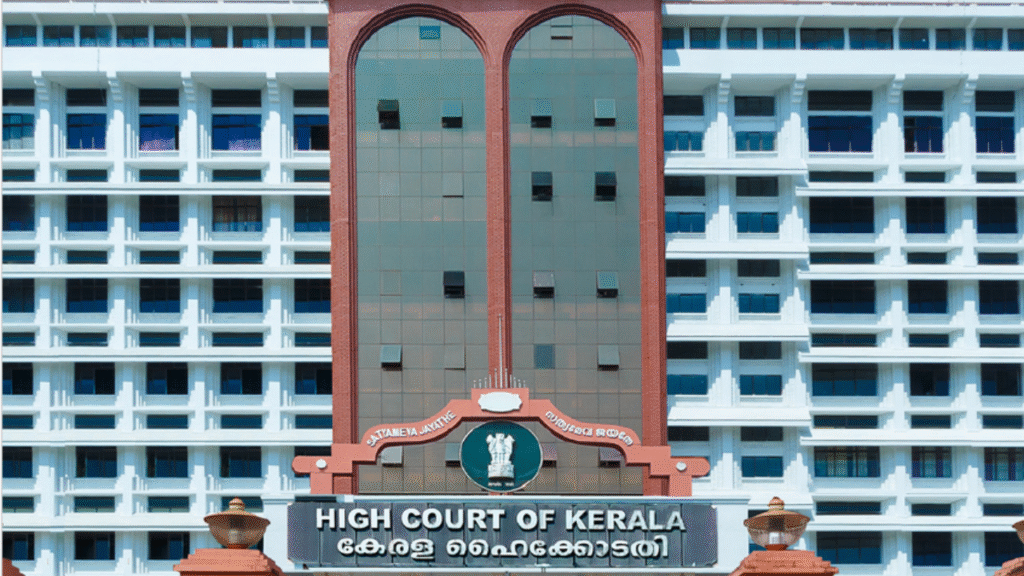Maintenance and Welfare of Parents and Senior Citizens Act, 2007 (Senior Citizens Act, 2007) – Protection of Women from Domestic Violence Act, 2005 (Domestic Violence Act, 2005)
Case Title: Anila & Ors. v. Maintenance Tribunal and Sub Divisional Magistrate, Ottapalam & Anr. Citation: WP(C) NO. 22270 OF 2021, 2025:KER:53464 Court: High Court of Kerala at Ernakulam Date of Judgment: July 16, 2025
Conflict between Senior Citizens Act and Domestic Violence Act regarding shared household/residence:
The petitioners (daughter-in-law and family) challenged an order (Ext.P10) from the Maintenance Tribunal allowing the 2nd respondent (mother-in-law) to reside in their shared building, arguing it violated the daughter-in-law’s right to a shared household protected by an existing interim order (Ext.P6) under the Domestic Violence Act.
Ruling: The Court held that the overriding effect of remedies sought under Section 3 of the Senior Citizens Act, 2007, cannot be interpreted to preclude other competing remedies and protections conferred by the Domestic Violence Act, 2005. Drawing from the Vanitha v. Deputy Commissioner, Bengaluru Urban District case, the Court stated that Tribunals under the Senior Citizens Act should mould reliefs appropriately, considering competing claims. In this specific case, the 2nd respondent (mother-in-law), who had regained ownership of the property, only sought to reside on the first floor which has a separate entrance and number, and explicitly stated no intention to violate Ext.P6. Therefore, Ext.P10 did not interfere with the petitioner’s right to a shared household under Ext.P6. The Court underscored the necessity to balance the rights under both Acts.
Maintainability of Senior Citizens Act proceedings against a daughter-in-law:
The petitioners contended that proceedings under the Senior Citizens Act, 2007, were not maintainable against the 1st petitioner (daughter-in-law) as she does not fall within the definitions of “children” or “relative” under Sections 2(a) and 2(g) of the Act.
Ruling: The Court adopted a purposive interpretation of the Senior Citizens Act, 2007, and applied the doctrine of casus omissus. Citing precedents from the Telangana High Court (Deepika H. v. Maintenance Welfare of Parents and Others) and its own judgments (Sheeja S. v. Maintenance Appellate Tribunal/District Collector, Reju and another v. Maintenance Tribunal), the Court held that the definition of “children” in Section 2(a) which uses the word “includes” (son, daughter, grandson, grand-daughter) is expansive and can encompass a daughter-in-law in certain circumstances. Given that the 2nd respondent (mother-in-law) now owned the property, had no other residence, and the daughter-in-law was in possession of a portion, the Court found that denying maintainability would defeat the Act’s purpose of providing a speedy and inexpensive remedy to senior citizens, forcing them into lengthy common law litigation. Therefore, the application under the Senior Citizens Act was maintainable against the daughter-in-law in this factual context.
Apprehension of harassment as a ground to prevent residence:
The petitioners expressed apprehension of physical and mental harassment if the 2nd respondent were allowed to reside in the building, citing past instances and police complaints.
Ruling: The Court held that mere apprehension of harassment is not a valid reason to prevent the 2nd respondent from residing in her own property. The 2nd respondent undertook not to cause harassment or violate the existing protection order (Ext.P6). The Court clarified that the petitioners remain free to approach the concerned court that issued Ext.P6 for any violation under Section 31 of the Domestic Violence Act, 2005, or to seek alternate accommodation under Section 19(f) of the Domestic Violence Act if they genuinely cannot reside there.
Outcome: The writ petition was dismissed, upholding the Maintenance Tribunal’s order permitting the 2nd respondent’s residence.


